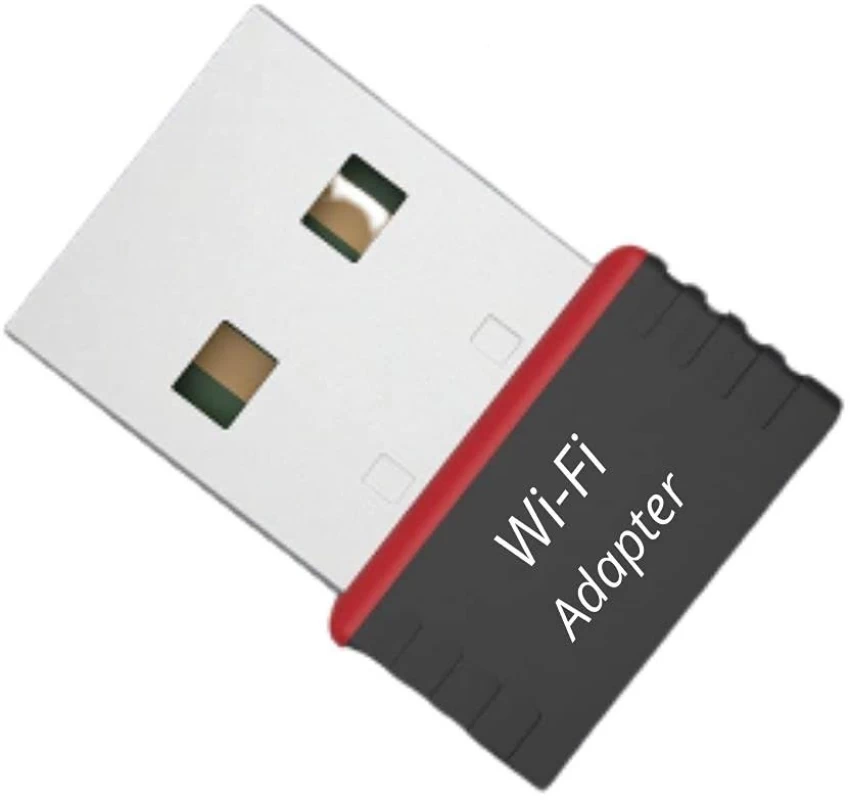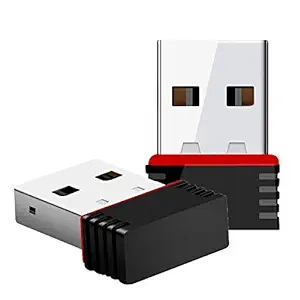WiFi Adapter For PC – What is Wi-fi Adapter?
A WiFi adapter for PC is an essential piece of hardware for any PC that needs wireless internet connectivity. With the right WiFi adapter, you can easily connect your desktop computer or laptop to WiFi networks at home, work, or in public places.
In this blog post, we’ll provide an in-depth look at WiFi adapters for PCs – how they work, the different types available, why you may need one, and some recommendations for the best WiFi adapters to consider for your computer. Whether you’re building a new PC or looking to add WiFi capabilities to an old desktop, read on to learn everything you need to know about WiFi adapters!
What is a WiFi Adapter?
A WiFi adapter is a hardware component that allows a computer to connect to a wireless network and access the internet. It works by taking the WiFi signals transmitted by a router and translating them into data the computer can understand.
Simply put, a WiFi adapter bridges the gap between your PC and a wireless network. It acts as an intermediary that facilitates communication between the two.
Without a WiFi adapter, a desktop computer or laptop cannot connect to or use WiFi internet connectivity. The adapter gives the PC the ability to locate nearby wireless networks, request access, and transmit/receive data over WiFi frequencies.

Working of a WiFi Adapter
A WiFi adapter works on the principle of radio signals. Here’s a quick rundown of what happens:
- The adapter contains a radio receiver/transmitter along with an antenna. This allows it to detect Wireless Technology network signals and send/receive data.
- When you want to connect to a wireless network, the adapter scans the area for available WiFi networks broadcasting their SSIDs (network names).
- Once it detects the desired WiFi network, the adapter sends an access request to the router.
- If the request is authenticated (by entering the correct network password), the router allows the adapter to join the network.
- The WiFi adapter can now communicate with the router in order to exchange data between your computer and the internet.
- The adapter encodes/decodes the data into radio signals and vice versa. So your computer is able to interpret the wireless data and stay connected.
- The antenna facilitates transmission and reception of these radio waves. It enables the adapter to get good range and stability when connected to the WiFi network.
So in simple terms, the WiFi adapter acts as the ears and mouth for your computer to wirelessly connect to the internet. It handles the radio signal processing that makes WiFi internet access possible.
Types of WiFi Adapters
There are three main types of WiFi adapters used for PCs based on how they connect to the computer:
USB WiFi Adapters
As the name suggests, these WiFi adapters connect to the computer using a USB port. They are plug and play devices – just plug them into an available USB port and the computer will automatically detect and install the required drivers.
USB WiFi adapters are extremely portable and convenient to use. You can easily plug them into laptops or desktops when required. Positioning them for good signal reception is also easy.
They are suited for adding WiFi access to PCs that lack built-in wireless connectivity. The maximum speed depends on the adapter model, but latest ones support up to wifi 6/6E.
PCIe WiFi Adapters
PCIe or PCI Express WiFi adapters install directly into a compatible PCIe slot inside the desktop PC. Therefore, they are more commonly used in desktops rather than laptops.
These provide faster speeds than USB adapters, with maximum speeds comparable to wired LAN internet. They also have better signal range and stability.
Installing a PCIe WiFi adapter involves opening up the PC case and plugging it into the motherboard. You may need to install antennas as well. It’s a bit more complex than using USB adapters but provides better overall performance.
Built-in WiFi Adapters
Many modern laptops and some desktop motherboards have built-in WiFi adapters pre-installed. This allows the computer to use WiFi right out of the box without needing any additional hardware.
Built-in WiFi uses mini PCIe or M.2 card slots on the motherboard. They perform very similar to PCIe adapters in terms of speed and connectivity.
The main advantage is convenience since no installation is required. You also avoid the hassle of having an external adapter sticking out. But the downside is that you cannot upgrade or replace the built-in WiFi card easily.
Uses of a WiFi Adapter
Here are the most common scenarios where you would need a WiFi adapter for your desktop PC or laptop:
- To add WiFi connectivity to an old desktop computer that only has ethernet.
- To upgrade WiFi speed and range on a PC, especially if using old 802.11n or ac WiFi.
- To get wireless connectivity on a desktop located far away from the WiFi router.
- To connect laptops to WiFi networks when on the go, e.g. at hotels and cafes.
- When the built-in WiFi adapter on a laptop stops working or needs replacement.
- To get better signal reception compared to built-in laptop WiFi adapters.
- To get wifi 6/6E speeds up to 1.2Gbps on PCs that don’t have the latest networking hardware.
In summary, WiFi adapters enable PCs to connect to wireless networks and enjoy high-speed internet access. They are must-have devices for PCs used in homes, offices, public places or anywhere that WiFi is available.
Recommended WiFi Adapters
When choosing a WiFi adapter for your desktop or laptop, there are several factors to consider:
- Type of computer (desktop vs laptop)
- Available ports for connecting the adapter
- WiFi standards supported
- Speeds offered – 802.11ac vs 802.11ax (wifi 5 vs wifi 6)
- Form factor and antenna design
- Price and brand reliability
Here are some of the top recommended WiFi adapters to buy in 2023 for great connectivity:
TP-Link Archer TX50E
The Archer TX50E from TP-Link is an excellent PCIe adapter that supports the latest WiFi 6E standard. It offers blazing fast speeds up to 1.2Gbps on the 5GHz and 6GHz bands.
The heatsink design ensures great heat dissipation for performance and stability. It also has beamforming support for greater range and dual band capability. Overall one of the best PCIe upgrades for WiFi connectivity.
ASUS PCE-AX58BT
The ASUS PCE-AX58BT is a killer WiFi adapter designed specifically for gaming and streaming. It supports the latest 160MHz bandwidth along with Bluetooth 5.0.
The easy setup process, heat dissipation technology and 2×2 MU-MIMO support make this a great choice for lag-free gaming performance. The range booster design also helps get coverage across large spaces.

Netgear Nighthawk A7000
The Netgear Nighthawk A7000 is arguably the best USB WiFi adapter available. It offers stellar performance with speeds up to 1900Mbps using dual-band 802.11ac.
This tiny adapter packs a punch with advanced features like beamforming+, dual core processor and external high gain antennas. It also has a magnetic cradle for flexible antenna placement. With USB 3.0 support, it’s perfect for gaming or 4K streaming anywhere.
EDIMAX EW-7833UAC
For an affordable USB adapter that doesn’t compromise on features, check out the EDIMAX EW-7833UAC . It delivers AC1200 dual band speeds up to 867Mbps and has a high gain antenna for great range.
The compact, portable size makes it perfect for travel and the LED signal indicator helps find the best location. At its low price point, this is a great choice for basic wireless connectivity.
FebSmart Dual Band AC1200
If you’re looking for a reliable, no-frills USB adapter, try the Feb Smart Dual Band AC1200 . It connects using USB 3.0 for blistering 802.11ac WiFi speeds.
The simple plug and play setup works across Windows, Mac and Linux operating systems. It rotates 360 degrees for better signal quality no matter where you place it. At just 1000-2000, this tiny adapter punches way above its weight in terms of value.
Conclusion
That wraps up our overview on Wi-Fi adapters for PCs. The key takeaways:
- A Wi-Fi adapter enables desktops and laptops to connect to wireless networks and access Wi-Fi internet connectivity.
- The three types are USB adapters, PCIe adapters and built-in adapters, each with their own pros and cons.
- You would need a WiFi adapter if your PC lacks wireless connectivity or to upgrade old/slow WiFi.
- Consider factors like computer type, WiFi standards, speed, design, and brand when choosing an adapter.
- Recommended options include TP-Link Archer TX50E, ASUS PCE-AX58BT, Netgear Nighthawk A7000, EDIMAX EW-7833UAC and Feb Smart Dual Band based on budget and requirements.
With the right Wi-Fi adapter, you can enjoy fast and reliable wireless connectivity on any desktop or laptop PC. Just plug it in, connect to your Wi-Fi, and surf away!
wifi adapter for pc
- How do I install a WiFi adapter on my computer?
- For USB adapters, just plug into any USB port and install drivers if required.
- PCIe adapters need to be inserted into PCIe slots inside desktop PCs. This involves opening the case, carefully inserting into slot, and connecting antennas.
- For built-in adapters, no installation is required as they come pre-installed on laptops/motherboards.
- How do I know if my PC needs a WiFi adapter?If your desktop PC lacks any wireless connectivity option in Device Manager, it definitely needs a WiFi adapter. For laptops, if in-built WiFi has stopped working or needs upgrade, you need an adapter.
- What is the difference between Wi-Fi and Wi-Fi adapter?Wi-Fi refers to the wireless network/internet connectivity. It is the technology that allows devices to connect to the internet wirelessly. A Wi-Fi adapter is a hardware component that allows PCs to connect to Wi-Fi networks and access wireless internet connectivity.
- How can I connect my PC to WiFi without adapter?It's not possible to connect to a WiFi network without a WiFi adapter. For desktop PCs, you will need to install either a USB or PCIe adapter. For laptops, you can try using a LAN cable to connect to router or use smartphone hotspot tethering via USB.
- How do Wi-Fi adapters work?WiFi adapters contain a radio transmitter/receiver and antenna. They detect WiFi network signals, send connection requests to routers, encode/decode signals into data for the PC, and transmit/receive wireless radio waves to facilitate internet connectivity over WiFi.
